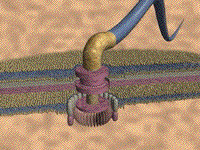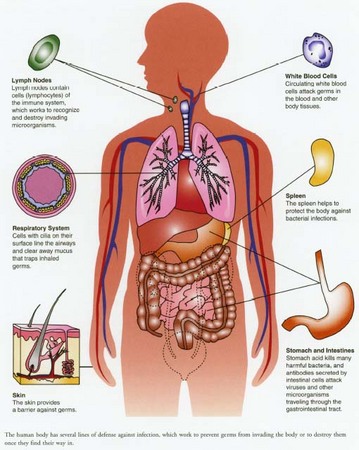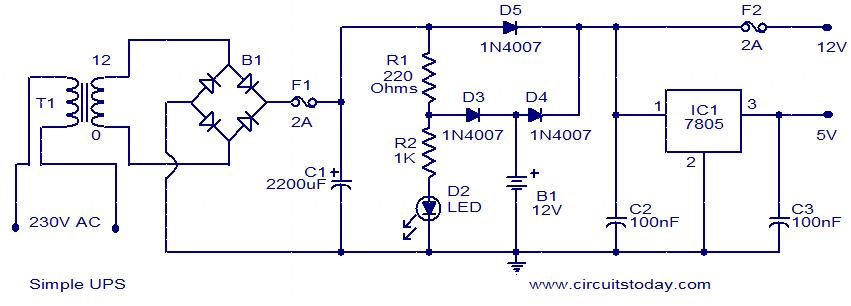Page 7 of 7
Re: Assymetrical to symmetrical complexity
Posted: Thu Dec 17, 2009 4:48 pm
by Sceptic
August wrote:Howl? Nice.
Yup. Since you believe that negatives can be proved, then I've just proved there's no God. God is supposed to be everywhere, but there's no God in my pocket. QED.
Re: Assymetrical to symmetrical complexity
Posted: Thu Dec 17, 2009 4:50 pm
by August
Sceptic wrote:August wrote:Howl? Nice.
Yup. Since you believe that negatives can be proved, then I've just proved there's no God. God is supposed to be everywhere, but there's no God in my pocket. QED.
Your argument is still self refuting.
The properties of an omniscient Christian God is well known and does not include that He be visible in your pocket, so your argument is a straw man.
Re: Assymetrical to symmetrical complexity
Posted: Thu Dec 17, 2009 4:53 pm
by Gman
Sceptic it doesn't appear you wish to engage in the discussion. Why are you here?
Re: Assymetrical to symmetrical complexity
Posted: Thu Dec 17, 2009 4:54 pm
by godslanguage
August wrote:godslanguage wrote:Since this thread has gone off topic, I think I will add a few more things to my argument for any of the readers following it.
Asymmetric to symmetrical design complexity (ASDC) is nothing short of a consequence of what we observe. An embryo, for example, seems to evolve backwards, where the symmetry precedes any asymmetry. In other words, the whole precedes the parts. Logically, this is the best way to make sure that the parts (asymmetric or not) "fit neatly" into the whole, by giving it a whole from the onset rather than like we humans do with cars and computers, which is slapping on a case or hood to hide the underlying components and therby creating the illusion of aesthetically pleasing. We see very little of that in design of biology. We see a process that anticipates certain things from the start instead of the end. Biology, in all its wonders is anything but an illusion of aesthetically pleasing or design.
Sorry GL. Maybe one of the mods can spin it off for us.
No problem. I guess I'll just go along for the ride

Re: Assymetrical to symmetrical complexity
Posted: Thu Dec 17, 2009 7:13 pm
by Gman
godslanguage wrote:Sorry GL. Maybe one of the mods can spin it off for us.
Oh, I think there are numerous cases for design.. I often think of the bacterial flagellum.

As an example how did all the parts form inside the membrane? It appears to have been assembled backwards with the stem and bushings inserted inside the motor first. Then pushed outside the membrane from the inside.

Re: Assymetrical to symmetrical complexity
Posted: Thu Dec 17, 2009 7:54 pm
by Gman
The human eye is another... Getting the lens inside the iris.

Re: Assymetrical to symmetrical complexity
Posted: Sat Dec 19, 2009 12:26 pm
by MisterOZ
The most formidable aspect of the bacterium flagellal motor is the clutch-breaking system which is comprised of single protein and requires four gene sequences for it to function. This is the major determinate for irreducible complexity and evidence of intelligent design. Just think how the breaking system in a car developed from just sticking your foot out to stop in Fords first slow moving prototype to todays computer assisted antilock systems. The flagellal clutch-breaking system acts as reduction gear like that designed for propeller shafts where the energy produced by the momentum of the turns is used to reduce the spin of the self rotating propeller to change its speed. This type of apparatus requires design and engineering particularly since the the protein must be created for that specific purpose. Now just think what it takes to operate a clutch-breaking system and it cannot be operated without it?
The mammalian eye is a work of such specified complexity that evolutionist have to hide it in ignorance, meaning that they oversimplify the anatomy of the eye even to the point of misrepresenting the facts that the seemingly "backwards" design of the eye is evidence of "faulty design" hence no intelligence. All one has to do is ask any ophthalmologist or eye surgeon about eye anatomy and how well and specifically placed and designed it is to refute any claim as to its random, specific by chance evolution. Another interesting observation about the eye and the apparent cooperation of genetic development is brain development and the brow ridge or supra-orbital ridge. Imagine that the eye evolved and as a result brain size increased, now the bony prominence above the eye in apes is pronounced so as to offer protection to the eye from sweat and foreign objects as well as a necessary characteristic to assist an apes massive jaw muscles, and is hairless in apes. Now supposedly, according to evolution, as the eye develops and brain size increases that bony prominence recedes and then has the temerity to grow hair (the eyebrow) in order to continue a physiological necessity to protect the eye. Design inference or intelligence? Imagine that the body did not do this then a possible better, although less aesthetic, development may have occurred such as a second or third eyelid, or some other protective biologic monocle.
The only true way to empirically prove the existence of God, is for existence to end. This is why the Resurrection is an important philosophical point, not withstanding salvation, since this allows us to logically understand the nature of God and just how limited not being God is. The only way to know God is through faith. No amount of evidence can supplant true Faith.
While I understand the meaning of the OP I can also see how the premise can be applicable to both intelligent design and evolution. I would like to offer that a person can donate a kidney and not feel any ill effects whatsoever from being lesser of one. Seems to me that God's symmetrical design can be looked at from several directives.
Re: Assymetrical to symmetrical complexity
Posted: Sat Dec 19, 2009 10:58 pm
by godslanguage
I can forsee Darwinists responding that geometrically symmetric design is selectively advantageous due to a number of possible reasons such as mobility as a key function for adaptation and survival. There seems to be an overall determining force for end-product symmetrical design. However, my argument is not "symmetrical design, therefore design". If it were that simple, then I would go with the snowflake-counter by Mr. sceptic.
A Ribosome:

A bacterial flagellum:

The end result:


Here is a very simple step-down transformer schematic for a PSU:

The end result could be:

A few things to note about the images. We find both asymmetrical and symmetrical integration "internally" with a strong tendency towards symmetrical "external" design. In other words, we go from a high degree of complex specified function to precise simplification.
Re: Assymetrical to symmetrical complexity
Posted: Sun Dec 20, 2009 12:34 pm
by cslewislover
Sceptic wrote:August wrote:Howl? Nice.
Yup. Since you believe that negatives can be proved, then I've just proved there's no God. God is supposed to be everywhere, but there's no God in my pocket. QED.
Um, lol. I guess because he can't see any atoms in his pocket, they don't exist either.
I just wanted to make a related comment, but one that won't really contribute (I don't think). It's interesting that humans tend to find asymmetrical things the most aesthetically pleasing, but not ones that are unbalanced. In art and design, things that are not symmetrical are considered better than plain symmetry, yet within the work there has to be a background or complex symmetry, which more generally is "balance." This conversation just brought that to mind . . .
Re: Assymetrical to symmetrical complexity
Posted: Sun Dec 20, 2009 12:37 pm
by zoegirl
Even in beauty, we tend to appreciate symmetry in people's faces.
Re: Assymetrical to symmetrical complexity
Posted: Sun Dec 20, 2009 12:41 pm
by cslewislover
zoegirl wrote:Even in beauty, we tend to appreciate symmetry in people's faces.
Yes, I've read that one reason Elizabeth Taylor was considered beautiful is that she had such a symmetrical face. Our faces are often quite asymmetrical. Yet, we are not made completely symmetrical. If we had two noses and two chins, we would look less pleasant and interesting.








